No construction stiff working overtime takes more stress and straining than we did just to stay high.
GUS VAN SANTI’m going in a really weird I-don’t-know-where direction, but I prefer anything [different] from how standardized filmmaking has become.
More Gus Van Sant Quotes
-





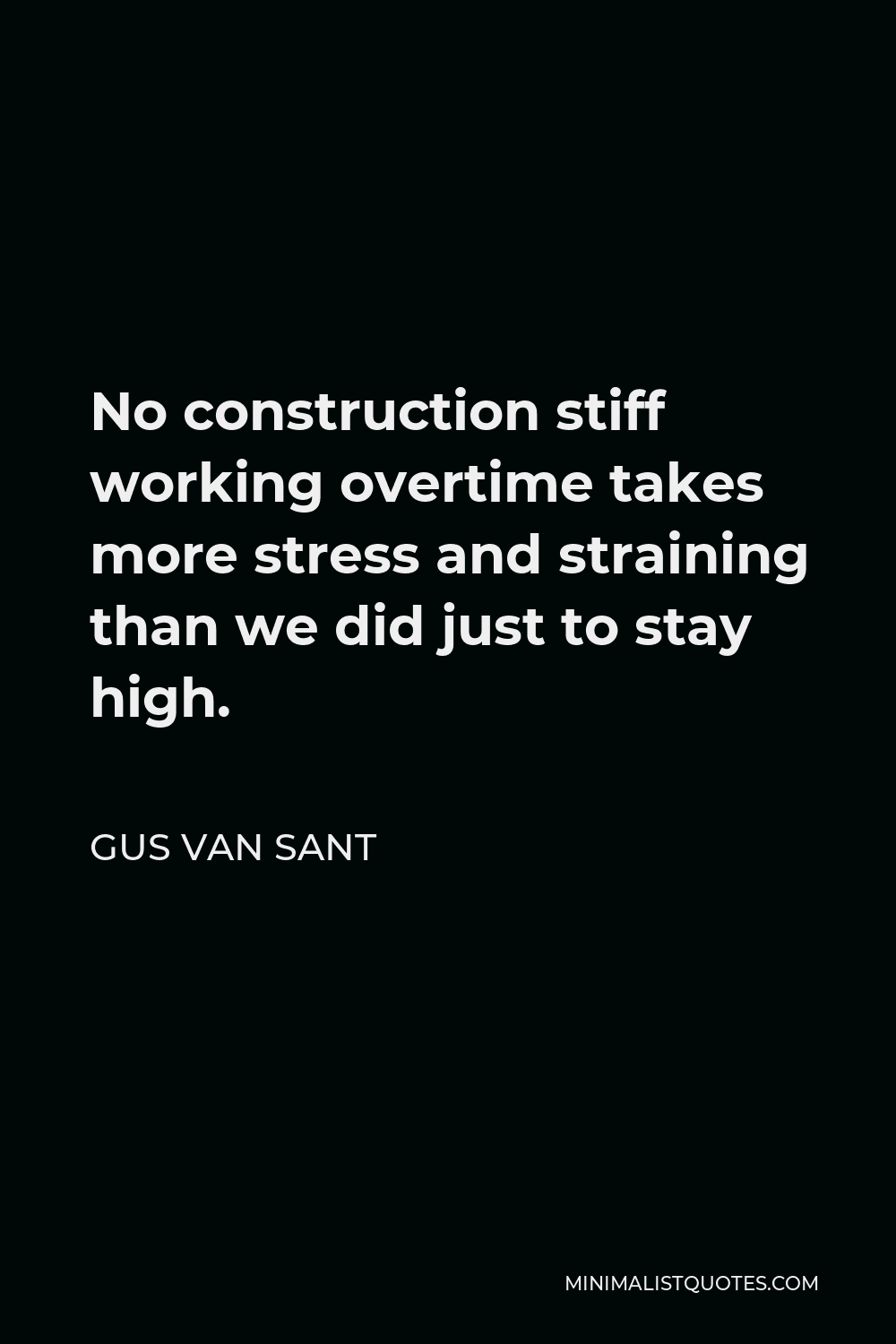
-





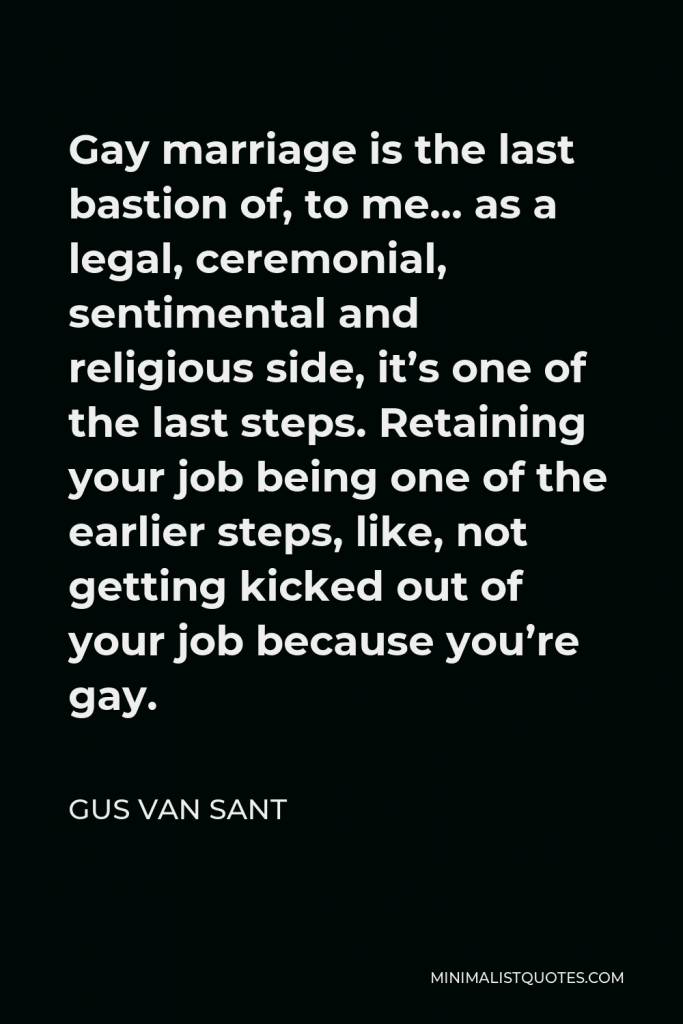

Gay marriage is the last bastion of, to me… as a legal, ceremonial, sentimental and religious side, it’s one of the last steps. Retaining your job being one of the earlier steps, like, not getting kicked out of your job because you’re gay.
GUS VAN SANT -





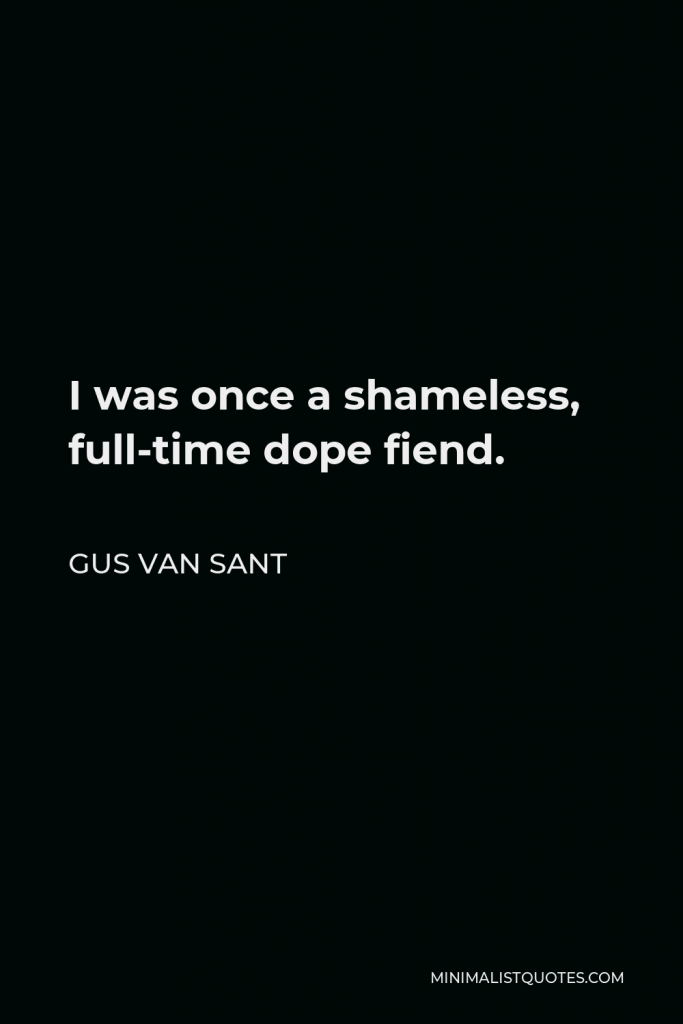

I was once a shameless, full-time dope fiend.
GUS VAN SANT -





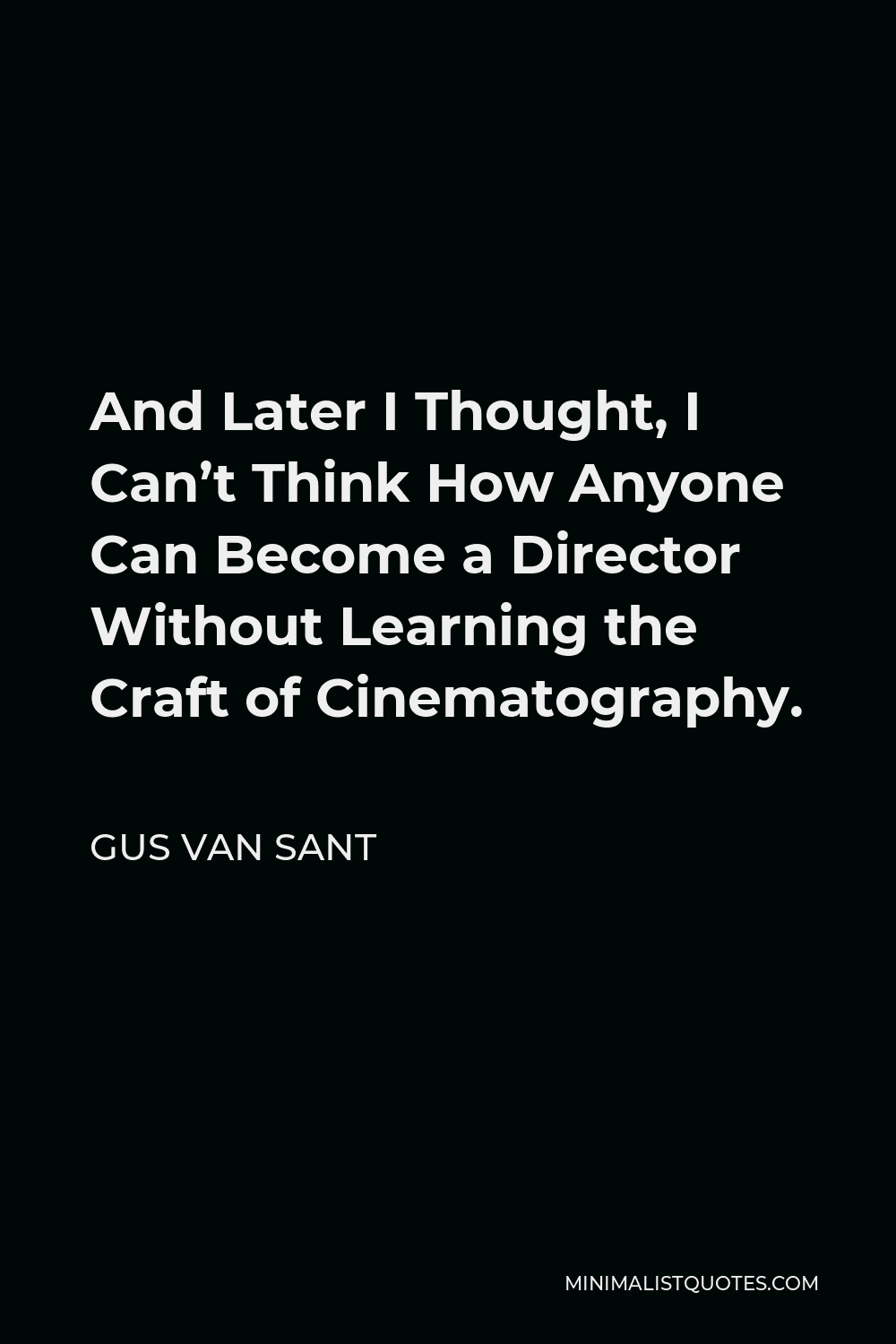
And Later I Thought, I Can’t Think How Anyone Can Become a Director Without Learning the Craft of Cinematography.
GUS VAN SANT -





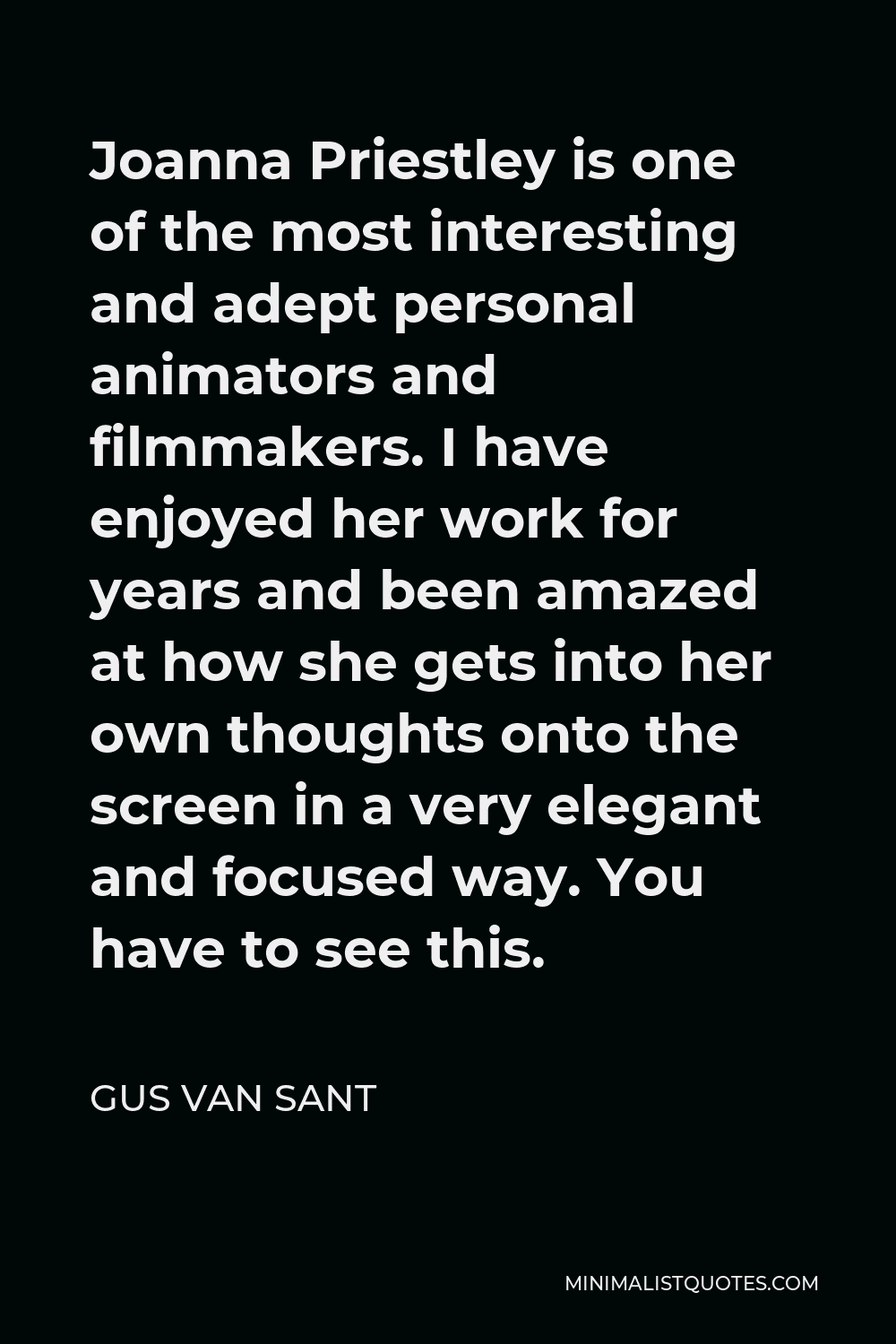
Joanna Priestley is one of the most interesting and adept personal animators and filmmakers. I have enjoyed her work for years and been amazed at how she gets into her own thoughts onto the screen in a very elegant and focused way. You have to see this.
GUS VAN SANT -





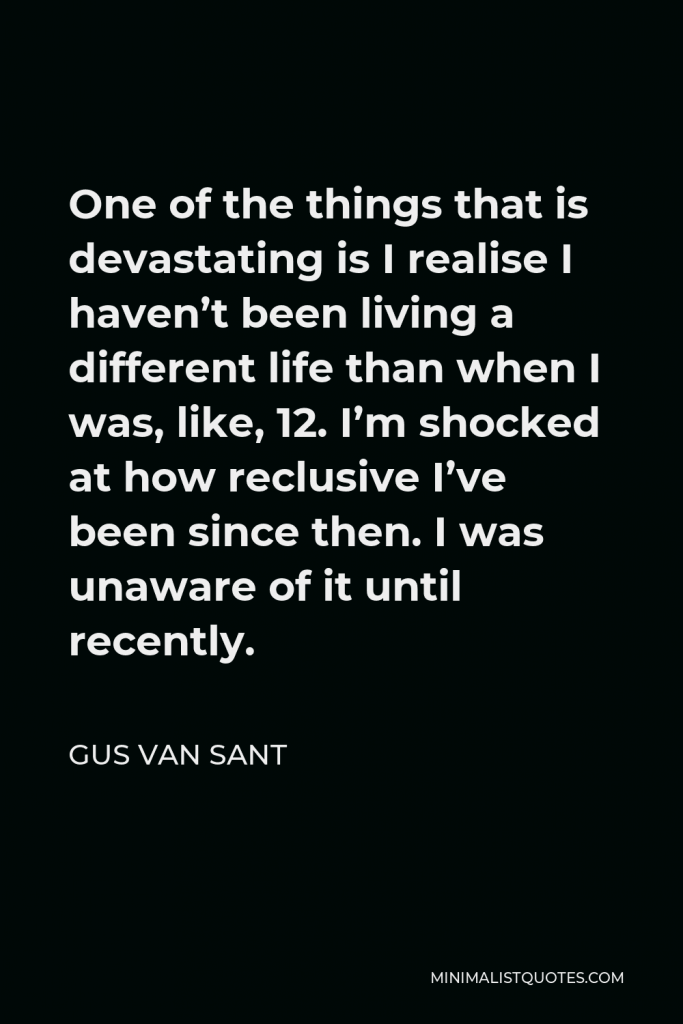

One of the things that is devastating is I realise I haven’t been living a different life than when I was, like, 12. I’m shocked at how reclusive I’ve been since then. I was unaware of it until recently.
GUS VAN SANT -





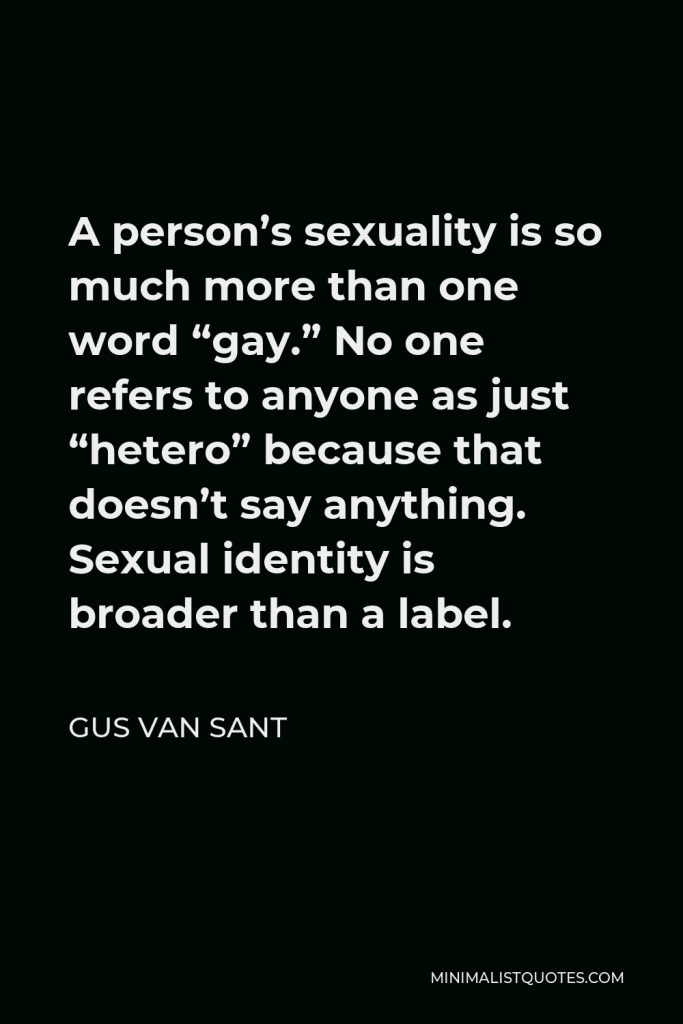

A person’s sexuality is so much more than one word “gay.” No one refers to anyone as just “hetero” because that doesn’t say anything. Sexual identity is broader than a label.
GUS VAN SANT -






Everything’s changing so fast that it’s sometimes hard to keep up.
GUS VAN SANT -





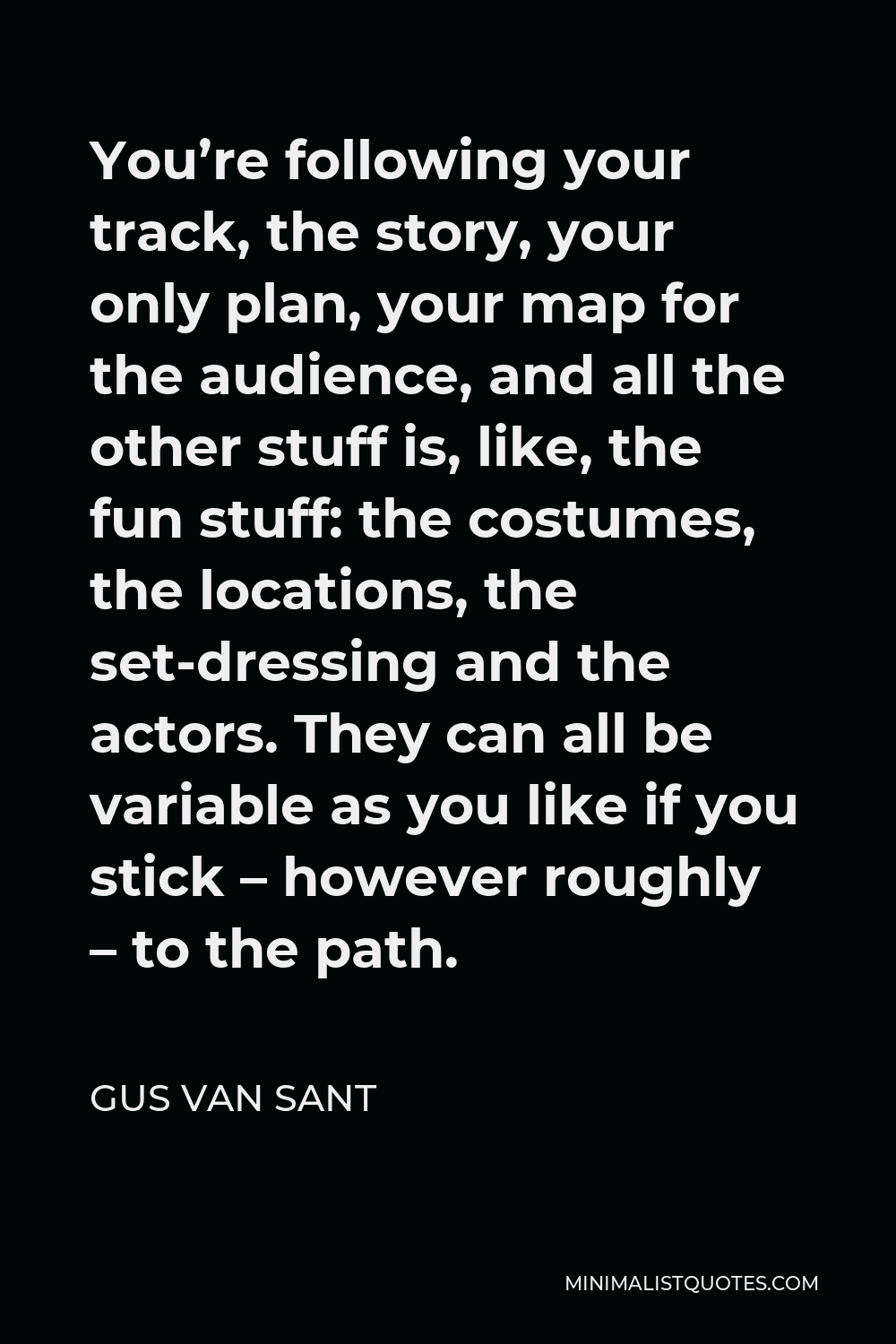
You’re following your track, the story, your only plan, your map for the audience, and all the other stuff is, like, the fun stuff: the costumes, the locations, the set-dressing and the actors. They can all be variable as you like if you stick – however roughly – to the path.
GUS VAN SANT -





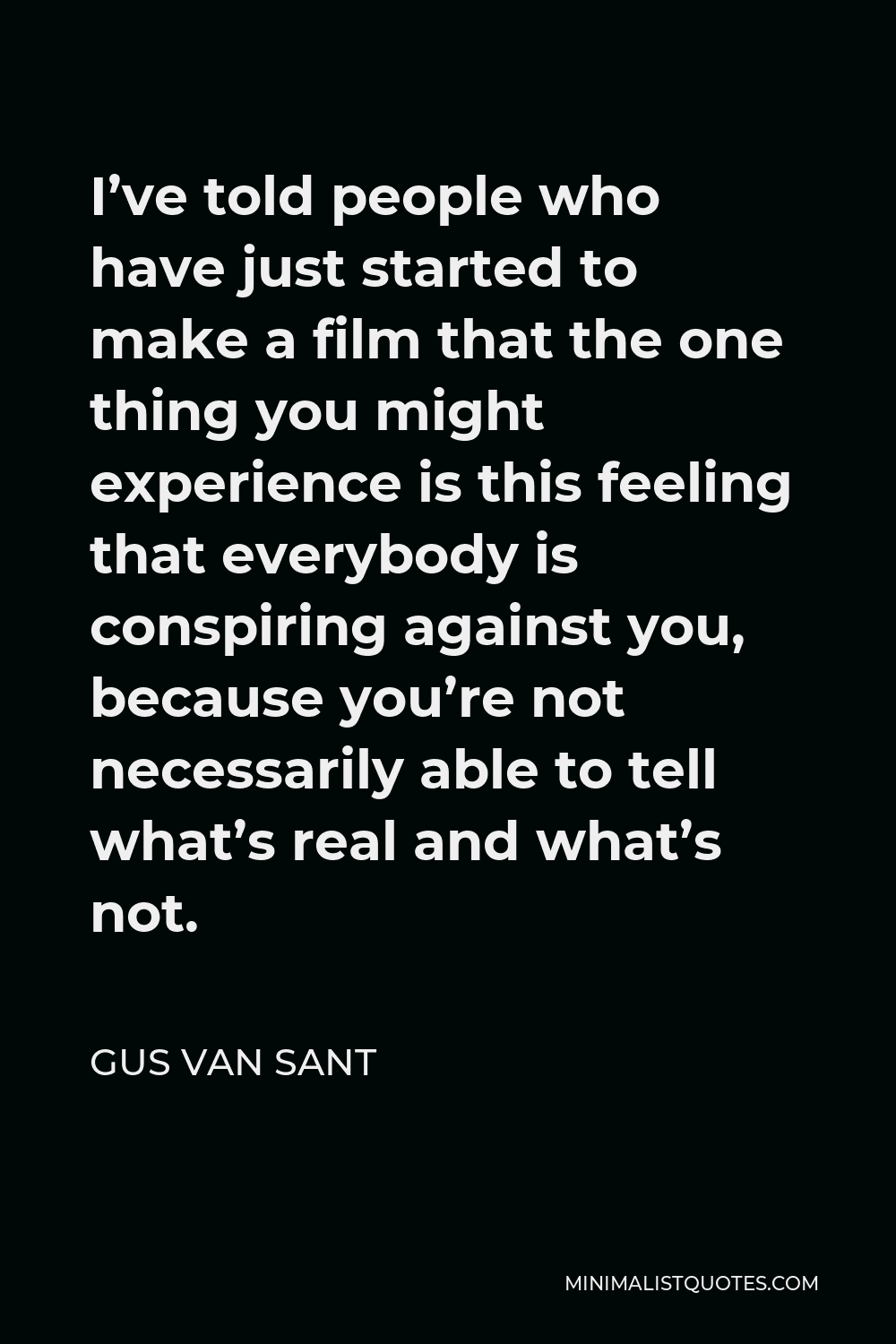
I’ve told people who have just started to make a film that the one thing you might experience is this feeling that everybody is conspiring against you, because you’re not necessarily able to tell what’s real and what’s not.
GUS VAN SANT -





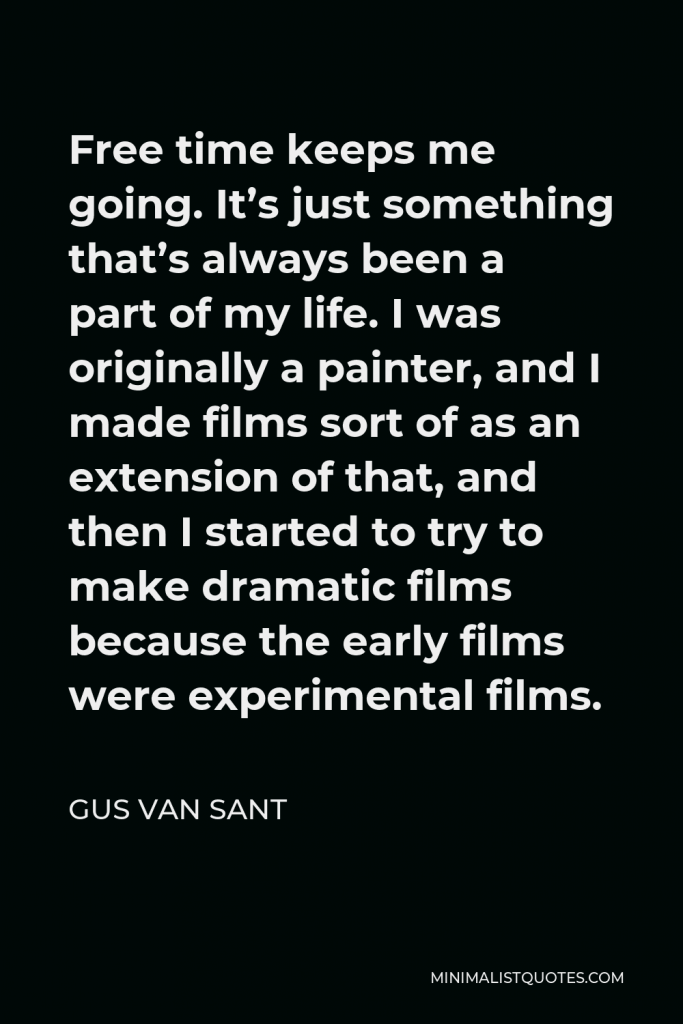

Free time keeps me going. It’s just something that’s always been a part of my life. I was originally a painter, and I made films sort of as an extension of that, and then I started to try to make dramatic films because the early films were experimental films.
GUS VAN SANT -





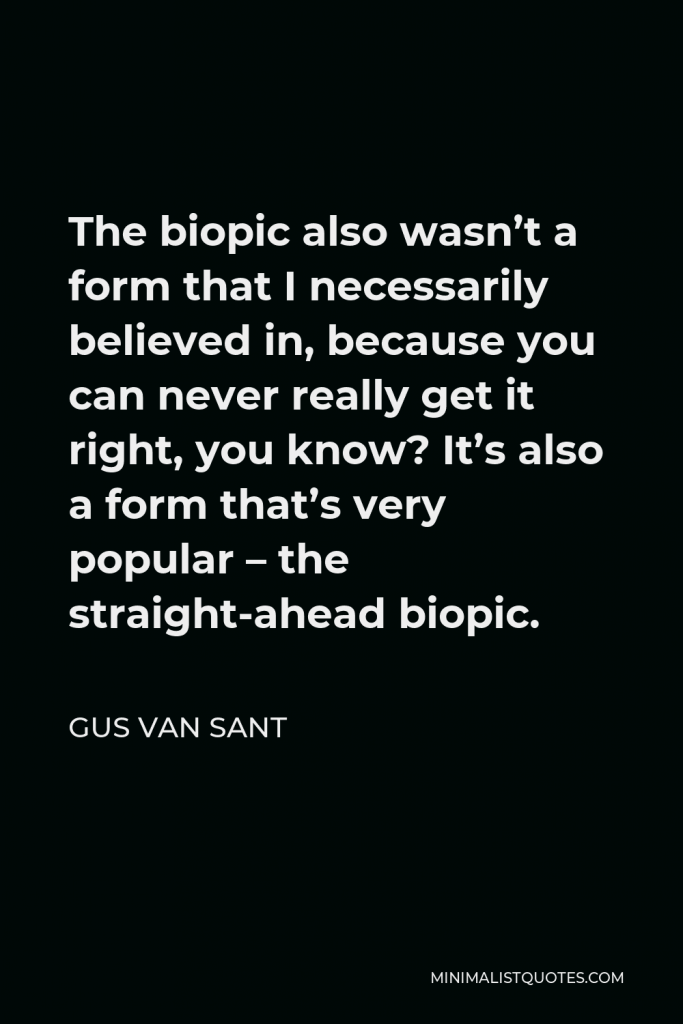

The biopic also wasn’t a form that I necessarily believed in, because you can never really get it right, you know? It’s also a form that’s very popular – the straight-ahead biopic.
GUS VAN SANT -





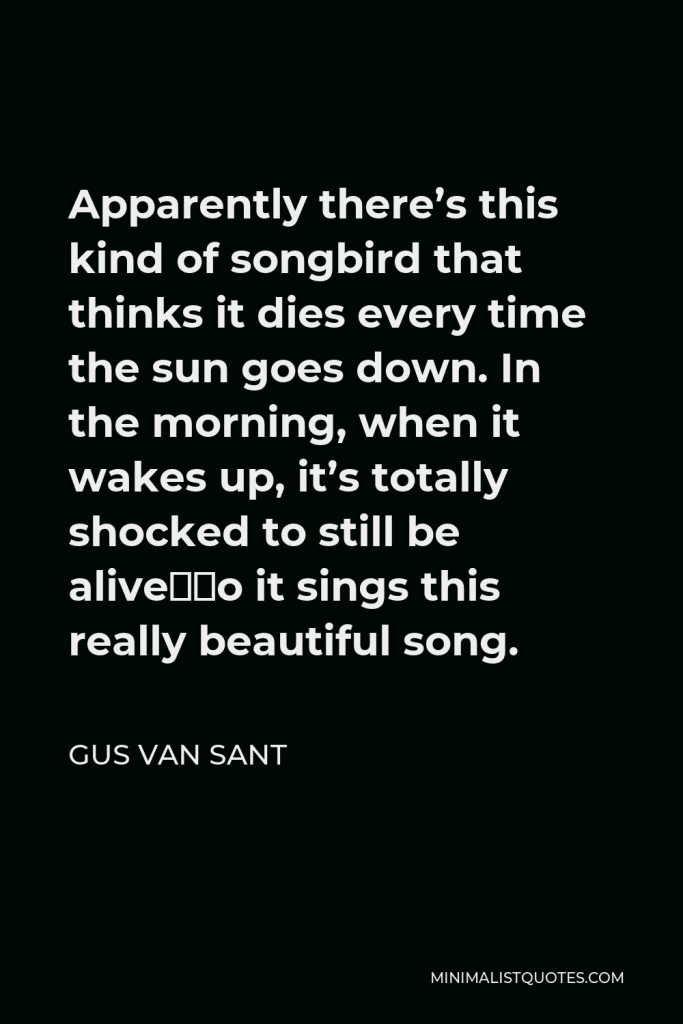

Apparently there’s this kind of songbird that thinks it dies every time the sun goes down. In the morning, when it wakes up, it’s totally shocked to still be alive—so it sings this really beautiful song.
GUS VAN SANT -





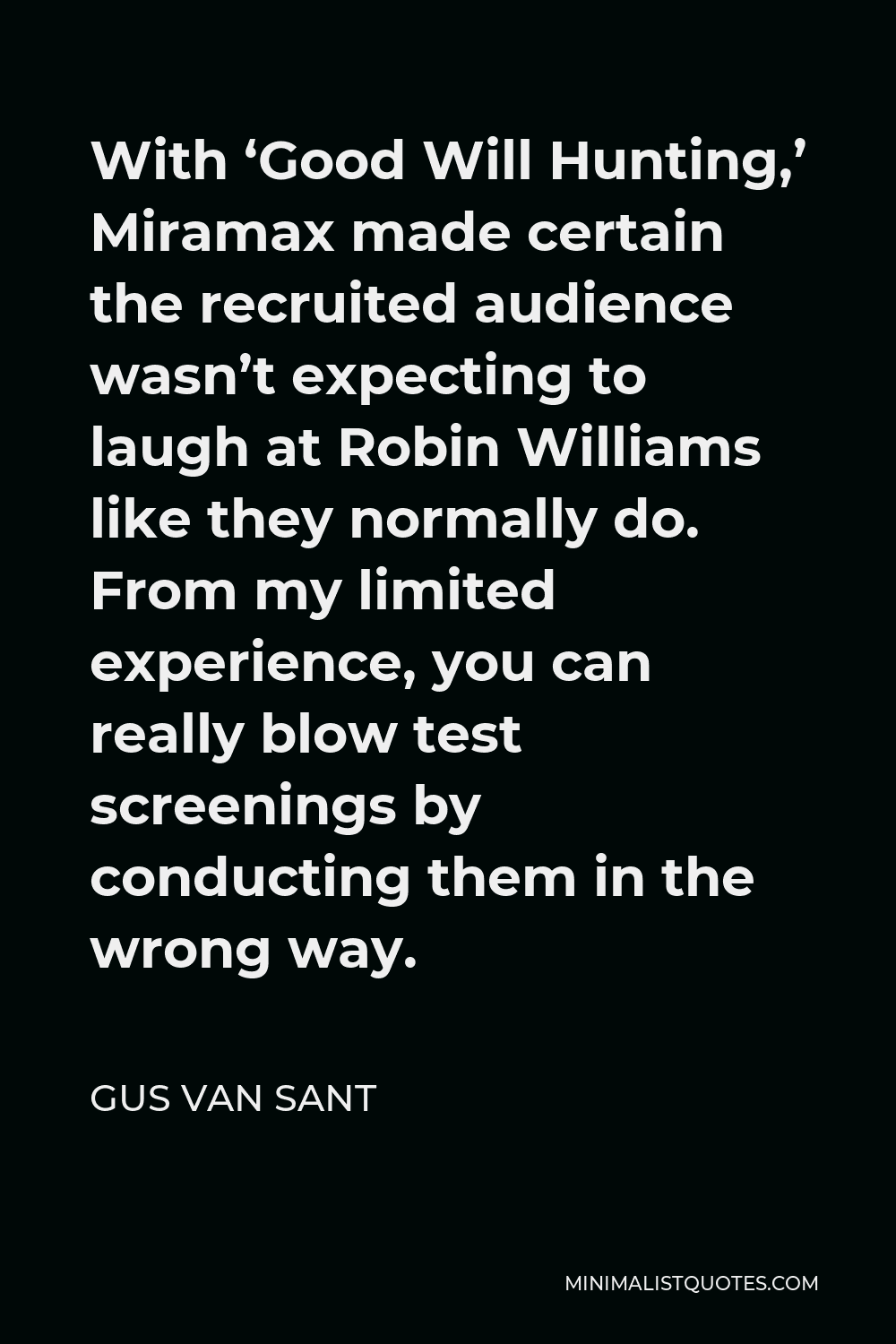
With ‘Good Will Hunting,’ Miramax made certain the recruited audience wasn’t expecting to laugh at Robin Williams like they normally do. From my limited experience, you can really blow test screenings by conducting them in the wrong way.
GUS VAN SANT -





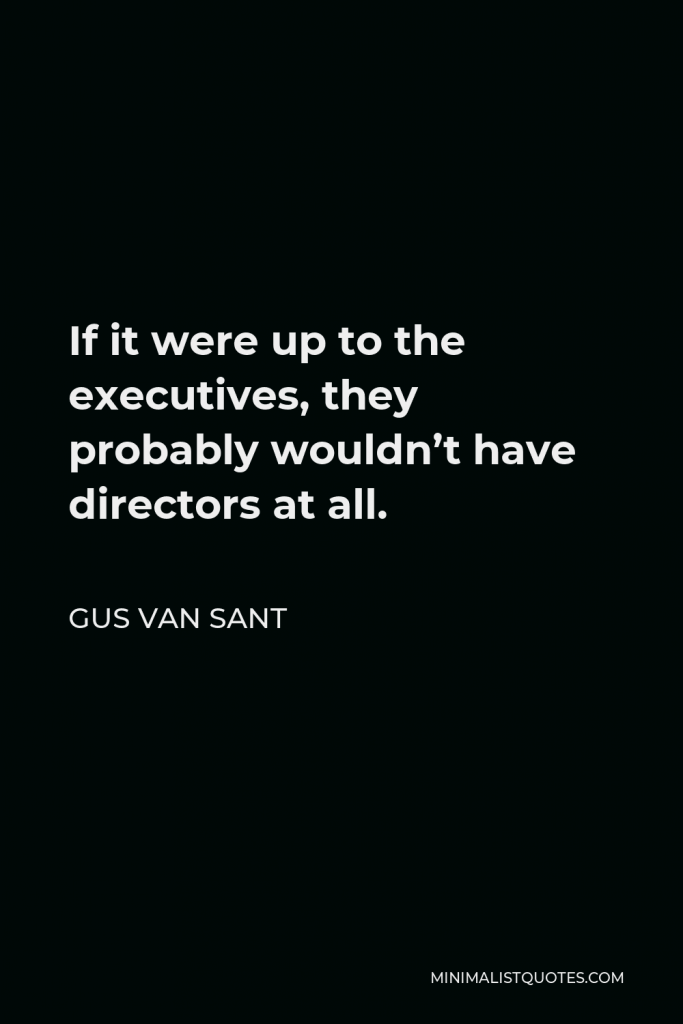

If it were up to the executives, they probably wouldn’t have directors at all.
GUS VAN SANT -





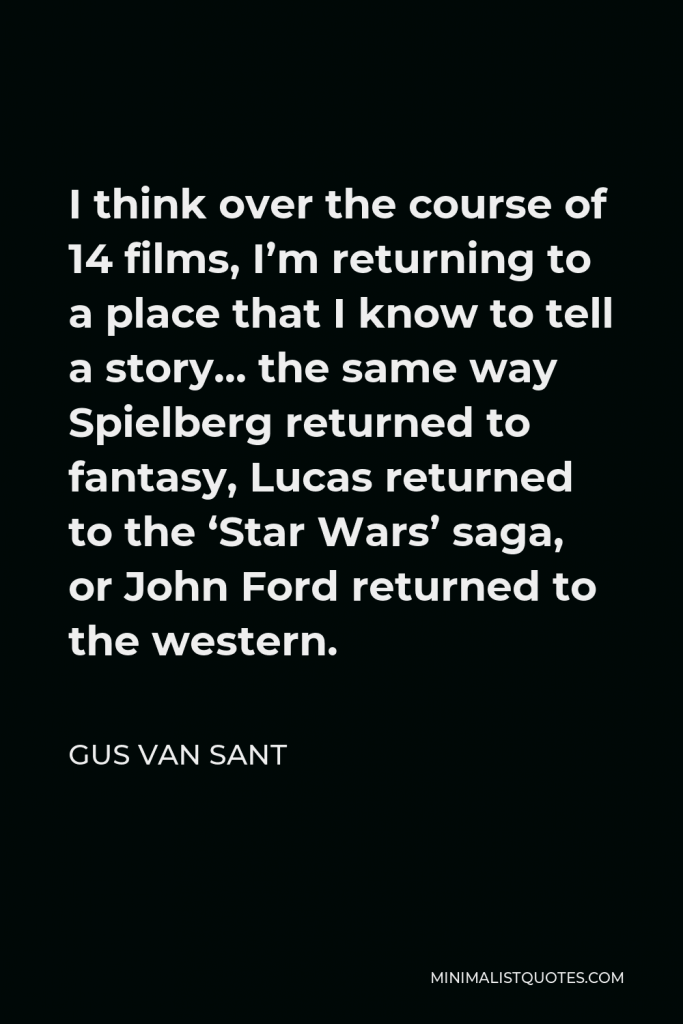

I think over the course of 14 films, I’m returning to a place that I know to tell a story… the same way Spielberg returned to fantasy, Lucas returned to the ‘Star Wars’ saga, or John Ford returned to the western.
GUS VAN SANT
![Gus Van Sant Quote - I’m going in a really weird I-don’t-know-where direction, but I prefer anything [different] from how standardized filmmaking has become.](https://minimalistquotes.com/images/im-going-in-a-really-weird-i-dont-know-where-direc.jpg)
![Gus Van Sant Quote - I’m going in a really weird I-don’t-know-where direction, but I prefer anything [different] from how standardized filmmaking has become.](https://minimalistquotes.com/images/grey-im-going-in-a-really-weird-i-dont-know-w.jpg)
![Gus Van Sant Quote - I’m going in a really weird I-don’t-know-where direction, but I prefer anything [different] from how standardized filmmaking has become.](https://minimalistquotes.com/images/blue-im-going-in-a-really-weird-i-dont-know-w.jpg)
![Gus Van Sant Quote - I’m going in a really weird I-don’t-know-where direction, but I prefer anything [different] from how standardized filmmaking has become.](https://minimalistquotes.com/images/red-im-going-in-a-really-weird-i-dont-know-w.jpg)
![Gus Van Sant Quote - I’m going in a really weird I-don’t-know-where direction, but I prefer anything [different] from how standardized filmmaking has become.](https://minimalistquotes.com/images/brown-im-going-in-a-really-weird-i-dont-know-w.jpg)
![Gus Van Sant Quote - I’m going in a really weird I-don’t-know-where direction, but I prefer anything [different] from how standardized filmmaking has become.](https://minimalistquotes.com/images/white-im-going-in-a-really-weird-i-dont-know-w.jpg)

